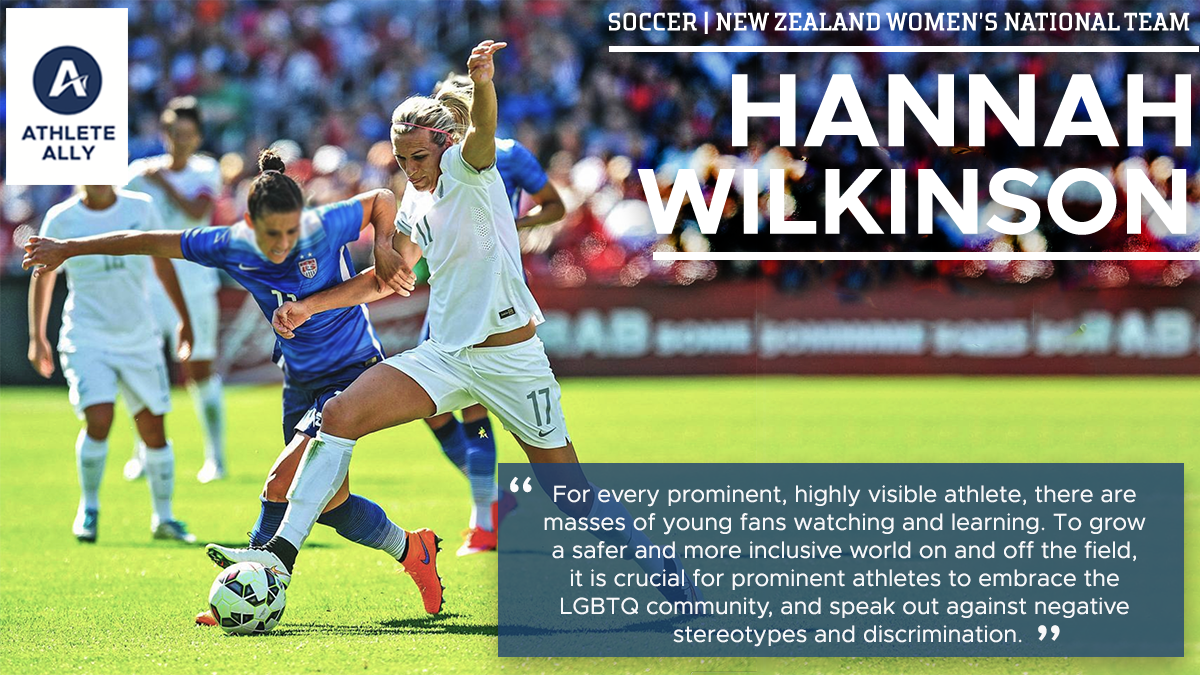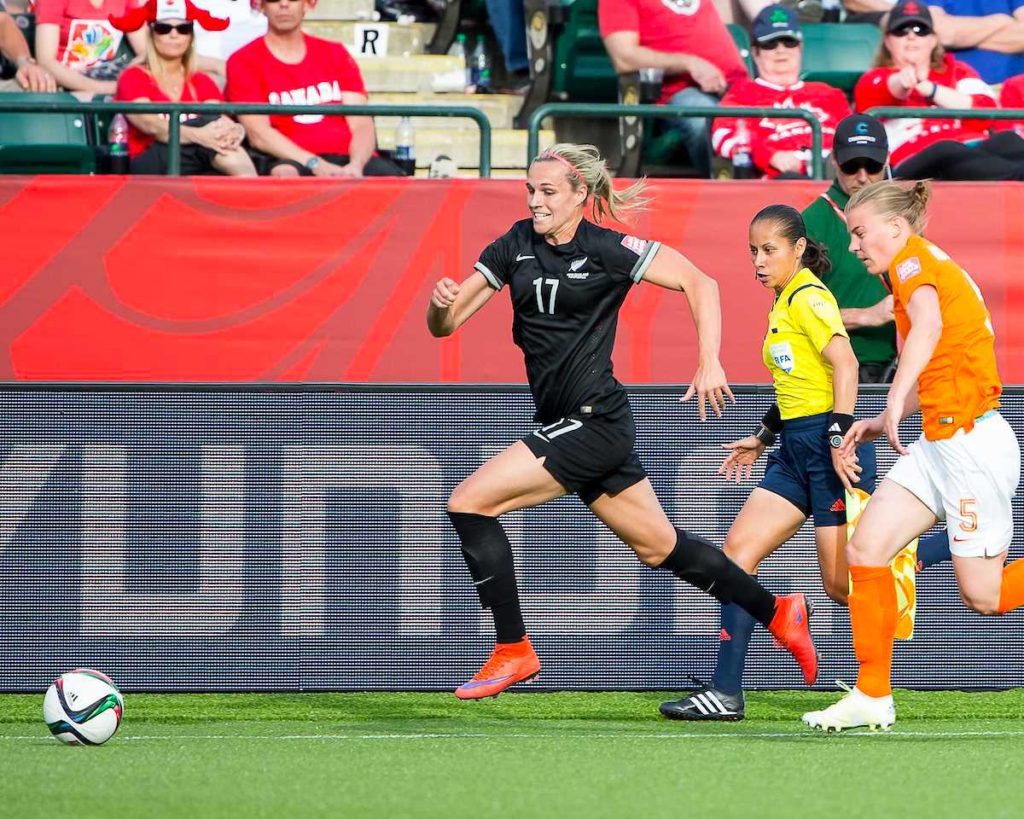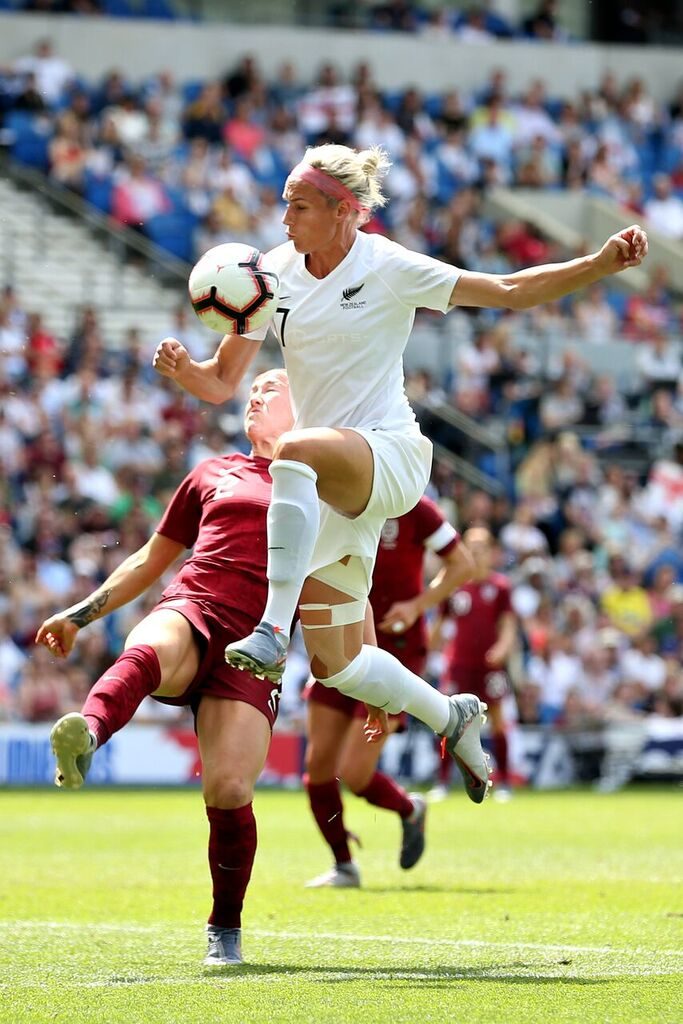Global Soccer Star Hannah Wilkinson: There’s Power in Embracing Who You Are

Out lesbian soccer player Hannah Wilkinson has represented New Zealand at three FIFA Women’s World Cups and two Olympics, and now joins Athlete Ally as a Pro Ambassador. Read on for our Q&A with Hannah about her experience playing on a global stage, what LGBTQ visibility means to her, and how coming out affected her life.
Athlete Ally: Growing up, what did you love most about soccer? Did you dream of becoming a pro footballer? If so, who were your role models/favorite athletes?
Hannah: I just fell in love with the competitiveness and the beauty of the game. It was a global sport too, so I knew it would take me to some amazing places. My first goal was to play for New Zealand, and then that progressed to becoming a professional – to become the best player I could be. My all-time role models will always be my parents. They demonstrate an unrelenting work ethic that I’ve found very inspiring.
What went through your mind when you found out you’d be going to your first World Cup in 2011, and what has it meant to you to represent New Zealand in this way?
I was absolutely ecstatic. There is no greater honor than representing New Zealand, and to get an opportunity to do that on the world stage at just 19 years old was absolutely incredible. Ever since then, every time I get to wear that jersey, I know what a privilege it is and I make sure to play my absolute heart out every game.

How has music been an outlet for you for you through the years?
Music has always provided me with a very necessary escape from the high pressures of professional football (soccer). From when I started playing the guitar at 13 years old, it has always been a really cathartic activity. I have found it particularly therapeutic when I’ve been forced off the field due to injury – it always positively filled in the hours of time spent resting and recovering.
What do you see as the impact of having out, visible LGBTQ pro athletes?
Visibility normalizes and celebrates the fluidity of identity, and promotes a ‘be proud of who you are’ message. It is crucial that messages like these are being spread to younger generations, particularly those struggling with identity at a tender age. These are the ones who are in dire need of role models like LGBTQ pro athletes to step up and help them to understand that they are not alone and that it will be ok.
How do you think coming out has made you a stronger player? Were there any reactions from friends, family or fans that surprised you?
Coming out has definitely made me a stronger player, because it has boosted my self-esteem and confidence. The liberation of coming out allowed me to completely accept myself and be proud of my identity. There is something exceptionally powerful about embracing who you are and that undoubtedly translates to athletic performance, specifically with regard to self–belief and recognizing what you are capable of. There was not a single negative reaction from anyone close to me – everyone showed me nothing but love and acceptance.

What do you see as the obstacles to making sport more open and inclusive to all LGBTQ athletes?
One of the biggest obstacles to inclusion is the use of derogatory language and the perpetuation of negative stereotypes. This is particularly prevalent in men’s sport, where there is a culture of ‘banter’ and toxic social constructions of ‘masculinity’, and the pressures associated with this. The more out LGBTQ athletes there are, the faster we can discourage these negative behaviors and attitudes in sport.
Why is it important to you to speak out for LGBTQ inclusion, and what makes you excited to join Athlete Ally as a Pro Ambassador?
I am exceptionally excited to join Athlete Ally as a Pro Ambassador because I want to use my platform to encourage inclusiveness and acceptance of all identities, particularly to younger generations.
Want to receive stories like this in your inbox? Sign up here.